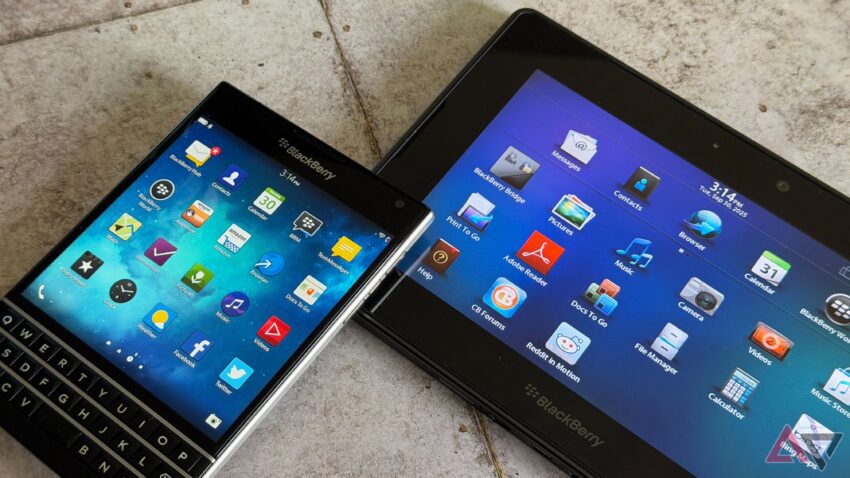
i still miss the blackberry that outsmarted BlackBerry’s foray into the tablet market with the PlayBook remains a notable chapter in the company’s history, despite its failure to achieve significant market traction.
i still miss the blackberry that outsmarted
The Rise and Fall of BlackBerry
In the early 2000s, BlackBerry was synonymous with mobile communication. The company, originally founded in 1984 as Research In Motion (RIM), revolutionized the way people communicated through its secure email services and physical keyboards. By the time the smartphone era began, BlackBerry had established a loyal customer base, particularly among business professionals who valued security and efficiency.
However, as the smartphone landscape evolved, BlackBerry struggled to keep pace with competitors like Apple and Android manufacturers. The introduction of the iPhone in 2007 marked a significant turning point, as it shifted consumer expectations towards more versatile, touch-screen devices. BlackBerry’s reliance on physical keyboards and its proprietary operating system began to hinder its ability to innovate and adapt to changing market demands.
The BlackBerry PlayBook: An Ambitious Yet Flawed Venture
In 2011, BlackBerry attempted to reclaim its relevance by launching the PlayBook, its first tablet. Positioned as a competitor to Apple’s iPad, the PlayBook was marketed as a device that combined productivity and entertainment. It boasted a sleek design, a 7-inch display, and the promise of seamless integration with BlackBerry smartphones. However, despite these appealing features, the PlayBook ultimately fell short of expectations.
Key Features and Initial Reception
The PlayBook was equipped with the BlackBerry Tablet OS, which was based on QNX, a real-time operating system known for its stability and security. This choice was intended to appeal to business users who prioritized these attributes. The tablet also featured dual-core processors, front and rear cameras, and support for Adobe Flash, which was a significant selling point at the time.
Upon its release, the PlayBook received mixed reviews. Critics praised its hardware and performance but were quick to point out its software shortcomings. The absence of native email and calendar applications at launch was a glaring oversight, particularly for a device aimed at business users. This lack of essential features led to confusion and frustration among potential customers, undermining the tablet’s initial appeal.
Market Challenges and Competition
The PlayBook was launched into a highly competitive market dominated by the iPad and a growing array of Android tablets. Apple’s iPad had already established itself as the gold standard for tablets, offering a vast ecosystem of apps and a user-friendly interface. In contrast, the PlayBook struggled to attract developers to create applications for its platform, which limited its functionality and appeal.
Moreover, the timing of the PlayBook’s release coincided with a shift in consumer preferences. As users began to favor larger screens and more versatile devices, the 7-inch form factor of the PlayBook became less appealing. Compounding these challenges, BlackBerry’s brand image was beginning to suffer as the company struggled to maintain its relevance in a rapidly evolving tech landscape.
BlackBerry’s Strategic Missteps
BlackBerry’s decision-making during the PlayBook’s development and launch has been widely criticized. The company appeared to underestimate the importance of a robust app ecosystem, which was crucial for the success of any modern tablet. Additionally, the lack of a cohesive marketing strategy further hampered the PlayBook’s visibility in a crowded marketplace.
Failure to Adapt
As the tablet market matured, BlackBerry failed to pivot its strategy effectively. The PlayBook received a software update in 2012 that introduced native email and calendar applications, but by then, it was too late to regain lost momentum. The damage had been done, and consumer interest had shifted elsewhere.
Furthermore, BlackBerry’s internal struggles during this period were exacerbated by leadership changes and a lack of clear vision. The company’s inability to innovate and respond to market trends ultimately led to its decline. The PlayBook, once seen as a potential game-changer, became a symbol of BlackBerry’s struggles to adapt to the new technological landscape.
The Legacy of the PlayBook
Despite its shortcomings, the BlackBerry PlayBook holds a unique place in tech history. It serves as a reminder of the challenges faced by established companies in adapting to rapid technological change. While the PlayBook may not have achieved commercial success, it did introduce several features that would later be adopted by other manufacturers.
Influence on Future Devices
The PlayBook’s design and hardware specifications influenced subsequent tablet designs, particularly in terms of build quality and performance. The emphasis on security and stability, rooted in the QNX operating system, also paved the way for BlackBerry’s later ventures into the Internet of Things (IoT) and automotive software.
Moreover, the PlayBook’s failure highlighted the importance of a comprehensive ecosystem for mobile devices. As companies like Apple and Google continued to expand their app stores and services, BlackBerry’s struggle to attract developers became a cautionary tale for other tech firms.
Stakeholder Reactions and Reflections
In the years following the PlayBook’s launch, industry analysts and former BlackBerry executives have reflected on the company’s missteps. Many have pointed to a lack of foresight and an inability to embrace change as key factors in BlackBerry’s decline. The PlayBook, while ambitious, was ultimately a product of a company that was struggling to redefine itself in a rapidly changing market.
Lessons Learned
The story of the BlackBerry PlayBook serves as a valuable case study for technology companies. It underscores the necessity of understanding market dynamics and consumer preferences. A strong product is not solely defined by hardware specifications; it must also be supported by a robust ecosystem of applications and services.
Furthermore, the PlayBook’s legacy emphasizes the importance of adaptability. Companies must be willing to pivot their strategies in response to emerging trends and consumer demands. The tech industry is characterized by rapid change, and those who fail to keep pace risk obsolescence.
The Future of BlackBerry
Today, BlackBerry has shifted its focus away from hardware and consumer devices, concentrating instead on software and cybersecurity solutions. The company’s pivot reflects a broader trend in the tech industry, where established players are re-evaluating their business models in light of changing market conditions.
While the PlayBook may not have achieved the success that BlackBerry envisioned, it remains an important part of the company’s narrative. The lessons learned from this venture continue to resonate within the tech community, reminding companies of the importance of innovation, adaptability, and understanding consumer needs.
Conclusion
The BlackBerry PlayBook may not have left a lasting mark on the tablet market, but it serves as a poignant reminder of the challenges faced by technology companies in an ever-evolving landscape. As BlackBerry continues to redefine itself, the legacy of the PlayBook will undoubtedly inform its future endeavors. The story of the PlayBook is not just about a failed product; it is a testament to the complexities of innovation and the necessity of staying relevant in a fast-paced world.
Source: Original report
Was this helpful?
Last Modified: October 1, 2025 at 8:59 pm
8 views














